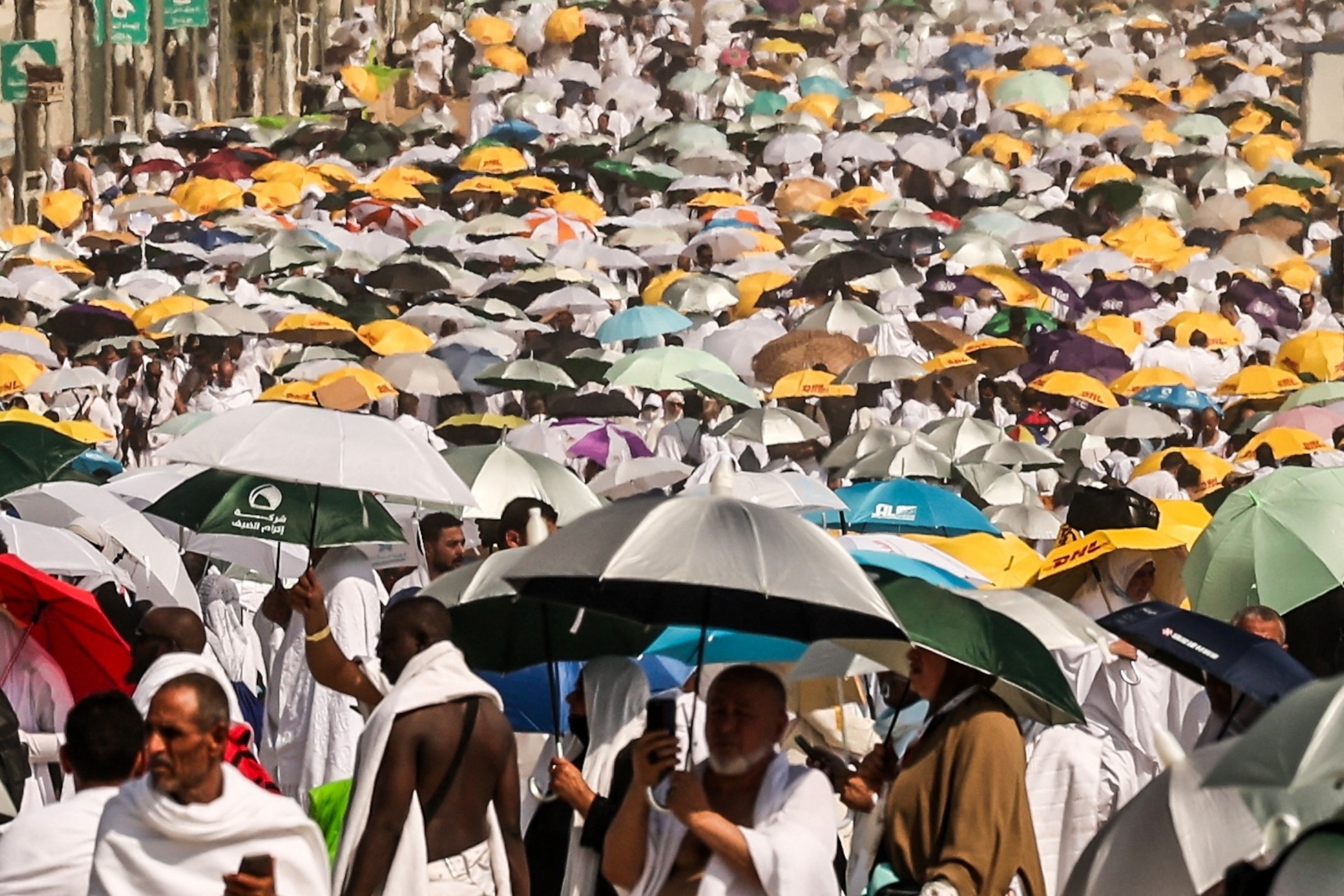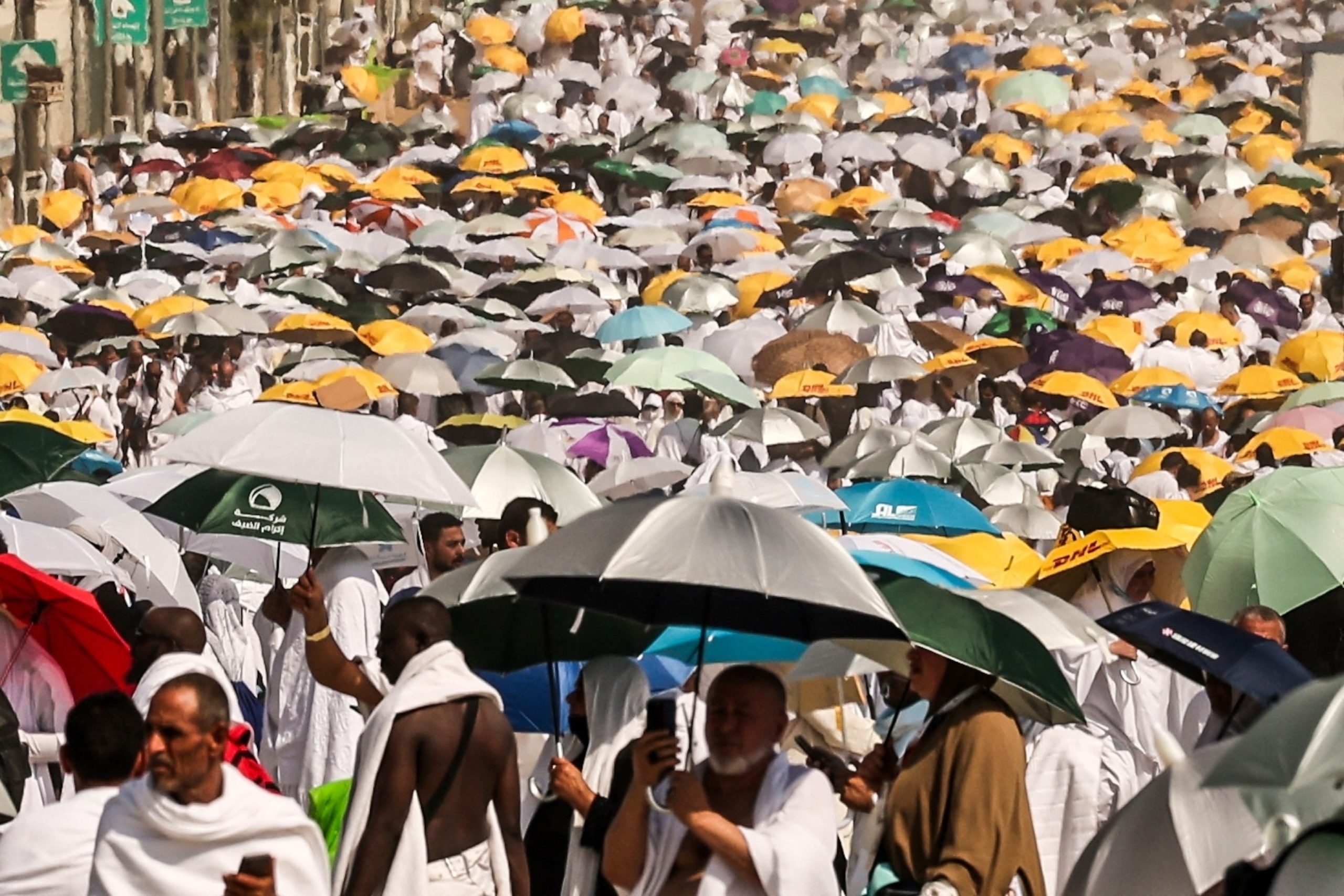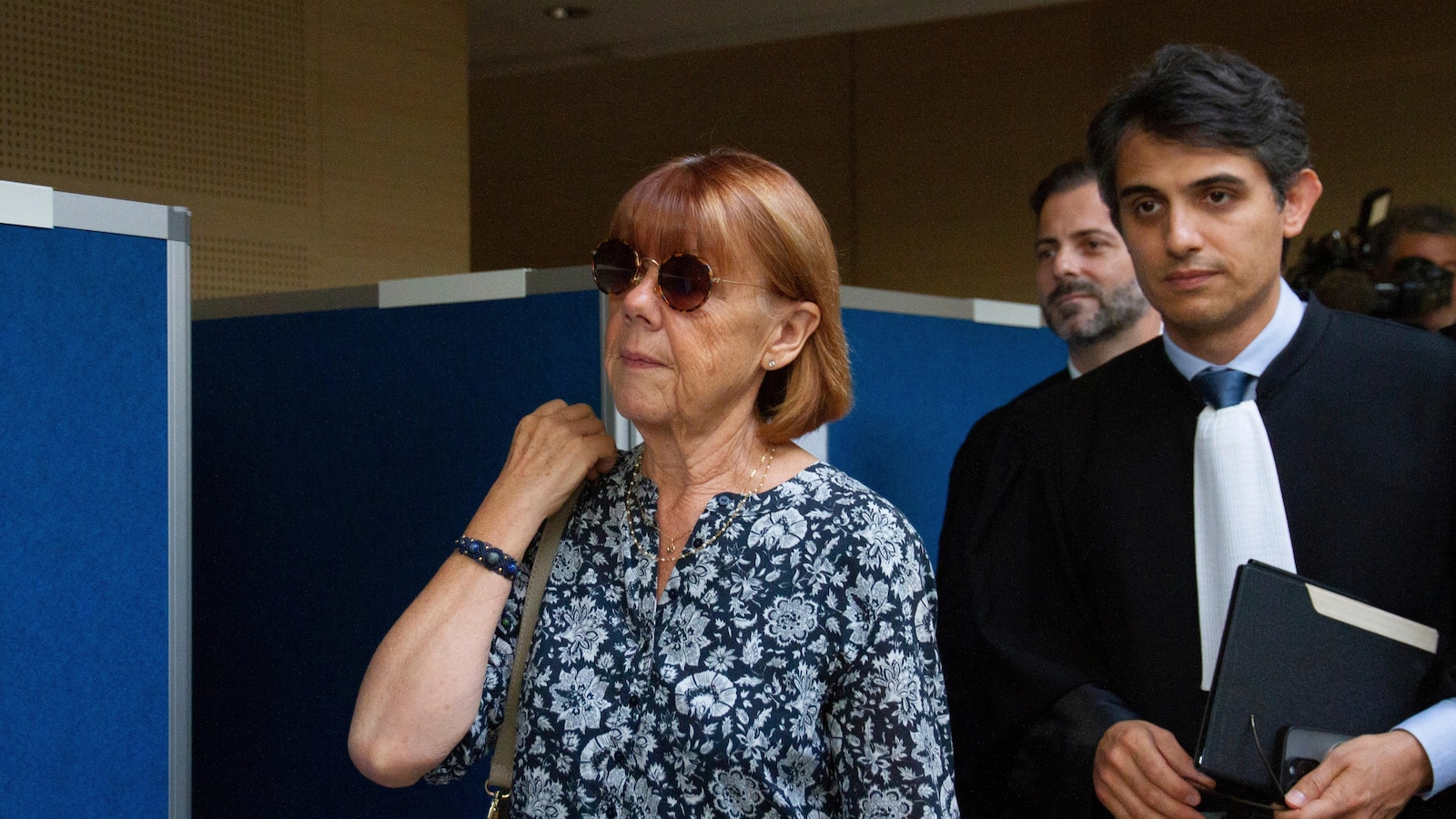Around 600 Egyptians have died during the annual Muslim pilgrimage to Mecca amid scorching heat, a security source said, as authorities formed a crisis unit on Thursday to probe the deaths.
The Egyptian fatalities are part of at least 1,000 deaths reported from this year’s hajj pilgrimage from different countries due to extreme heat as temperatures soared past 51 degrees Celsius (123.8 degrees Fahrenheit).
Most of the deaths occurred among unregistered pilgrims who did not have permits giving them access to air-conditioned tents and bus transfers between holy sites provided to authorized worshippers.
Egyptian President Abdel Fattah El-Sisi has ordered that a crisis unit headed by the prime minister investigate the deaths of the country’s pilgrims.
Egypt has not confirmed the total fatalities, but the cabinet said of the 50,752 officially registered pilgrims, 28 have died. Authorities said it was difficult to provide medical care for unregistered worshippers due to lack of information.
Egypt was coordinating with Saudi authorities to get an accurate inventory of the dead and missing and arrange for the transfer of bodies, the cabinet said in a statement.
Companies that had facilitated travel for unauthorized pilgrims would be investigated and penalized, it added.

Muslim pilgrims use umbrellas to shade themselves from the sun as they arrive at the base of Mount Arafat, also known as Jabal al-Rahma or Mount of Mercy, during the annual hajj pilgrimage on June 15, 2024. Friends and family searched for missing hajj pilgrims on June 19 as the death toll at the annual rituals, which were carried out in scorching heat, surged past 900.
Fadel Senna/AFP via Getty Images
Egyptian officials were visiting hospitals to obtain information about Egyptian pilgrims being treated or those who have passed away.
“There are large numbers of Egyptian citizens who are not registered in hajj databases, which requires double the effort and a longer time to search for missing people and find their relatives,” the cabinet said.
Videos posted on social media in recent days showed bodies of pilgrims scattered on the streets around the Grand Mosque in Mecca.
Fatalities have also been confirmed by other countries with at least 183 having been confirmed dead by Indonesia, 68 by Jordan, 35 by Tunisia and 68 by India. Malaysia, Pakistan, Iran and Senegal also reported more deaths.
Hajj is one of the main pillars of Islam. Muslims who can afford it and are physically able are required to take part in it once in their life. It’s one of the largest annual religious gatherings in the world and over 1.8 million pilgrims were expected to take part in this year’s hajj, according to Saudi authorities.
The hajj pilgrimage, one of the five pillars of Islam, is a sacred journey that millions of Muslims undertake each year to the holy city of Mecca in Saudi Arabia. Unfortunately, this year’s pilgrimage has been marred by tragedy as reports indicate that over 600 Egyptians have lost their lives during the annual event.
The hajj pilgrimage is a physically demanding journey that requires participants to perform a series of rituals over the course of several days. With millions of pilgrims converging on Mecca at the same time, overcrowding and logistical challenges can sometimes lead to accidents and fatalities.
According to sources, the majority of the deaths were due to natural causes such as heart attacks and heat exhaustion. However, there were also reports of stampedes and other incidents that resulted in casualties. The Egyptian government has expressed its condolences to the families of those who lost their lives and has vowed to investigate the circumstances surrounding the deaths.
The hajj pilgrimage is a deeply spiritual experience for Muslims around the world, and the loss of so many lives during this sacred journey is truly heartbreaking. It serves as a reminder of the importance of ensuring the safety and well-being of all pilgrims who undertake this journey.
In response to the tragic events, Saudi authorities have implemented measures to improve safety and security during the hajj pilgrimage. These include crowd control measures, improved medical facilities, and increased monitoring of pilgrims’ movements.
While the hajj pilgrimage is a deeply meaningful and significant event for Muslims, it is also important to prioritize the safety and well-being of all participants. The loss of over 600 lives during this year’s pilgrimage serves as a sobering reminder of the need for continued vigilance and precautionary measures to prevent future tragedies.



